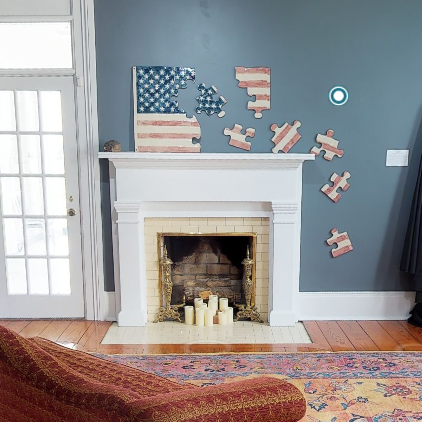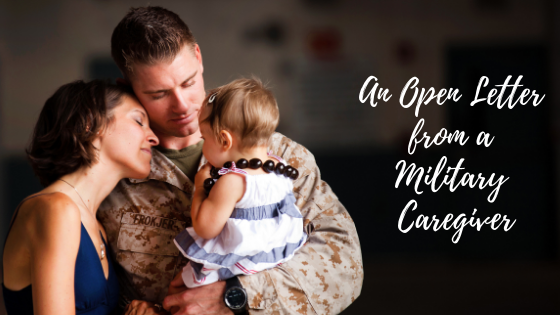
This post is an original article written by Timothy Wienecke. Tim is a United States Air Force veteran and clinical mental health counselor practicing in Golden, Colorado. He has specialized in supporting veterans transitioning to higher education after the military through his work as a facilitator for the Peer Advisers for Veteran Education (PAVE) program at the University of Colorado at Denver.
You found a program, you have a plan, and you’re getting ready to start your first semester in college. That took a bit of effort, but you’re nowhere near done.
1. You’re not a NCO anymore.
Welcome back to being brand new. You’re showing up to a new place, in a new system, and it’s going to require to you learn an entirely new way of doing things. You’re going to adapt the skills you’ve picked up through your life and learn new ones. So, don’t talk down to the 20-year-old setting next you. Your new peers are young, bright eyed, and think they know everything, just like you did at their age. They also know how to pass the exam, which professors are a pain, and where to get cheap text books. There are going to be peers full of hot air and there are going to be bright ones who you can learn from. Take the time to figure out which are which.
Same goes for your professors; respect them, even when you disagree with everything they are saying. The people in front of your classes paid their dues. They have spent years of their lives in academic study on what they are teaching you. If they start being offensive toward your service or other identities, that’s a different discussion. However, if you just don’t like the information they are presenting on the topic, avoid calling them out in class. Do some research, write a paper, or catch them offline. As we learned from good leaders we served with, correct in private and praise in public. If you don’t, you’ll likely end up with a poor reputation and a bad experience.
2. You aren’t 19 and fresh faced.
You have skills most people in college don’t. You know how to work on a team, complete tasks on time, and how to follow detailed instructions. Businesses across the country have consistently told colleges that they’re sending graduates into the world missing those skills. Own your skills and use them to mentor that 19-year-old that helped you avoid signing up with a bad professor. Be patient and leverage your experience to improve the community. By picking your major, you’ve decided you want to work with the folks sitting next you after you graduate. Learn by helping them learn. Like we were taught in the military, you gain mastery of a skill by teaching it.
3. There’s no 0600 formations, get up anyway.
In the military, structure is often a hallmark of performance. We train, workout, and our leaders push us to the breaking point during training so we can do our job while either we, or the people we support, are in line of fire. Like it or not, the structure the military provides often made us better at the job. College is different in that you must create the structure that’s effective for you.
A lot of vets stop working out, drink like they are on leave, and lose all the habits that made them successful during their service. It’s important to learn to relax, but it is critical not treat civilian life like you’re perpetually on leave. You’re building a future for you and your loved ones. Work like it. If you get up in the morning, hit the gym, and don’t party on week nights. If you do, you’ll have a better shot at building a life you’ll be proud of.
4. Find your inner civilian.
It doesn’t matter if you’ve served for two years or thirty, your time in the military was formative. The whole system is designed to mold you into an effective Soldier, Sailor, Marine, or Airman. You will always carry that identity, whether you want to or not. However, it’s now your background, not your future. Make the space to see what is different for you now that you’re out of uniform. College is a great place for this because in so many ways it is the other side of the coin. The military, by necessity, is a conservative organization. Colleges, also by necessity, tend to be liberal organizations. It takes roughly six months to a year for most veterans I’ve worked with to begin getting an idea of who they want to be as a civilian. It’s less painful and goes faster if you pay attention to what’s changing so you can do it with purpose.
The best way I’ve seen people do this is to be open to the college experience and utilize the support that’s available. Colleges are set up for students to have the space to “find themselves”. Take a class on something you know nothing about, attend some events for people not like yourself, and have conversations with students who are different from anyone you’ve taken time to listen to before. Most of the time, you’ll confirm things you already know about yourself and that’s great. Other times, you’ll be surprised what by what you learn about yourself.
5. You’ve got time, learn how to use it.
Most of our time in the military, someone else was responsible for our schedules as the bulk of our time in service was mapped out by our superiors. From 0400 to 2000, my duty day was laid out with PT, change over, administrative crap, mentoring my Airman, training schedules, and all of it while accomplishing the mission. Then, on my days “off” there was almost always some part of my day command needed. My first semester in college, I had two days during the week I needed to be somewhere for a total of six hours, otherwise I was expected to sort out how to spend my time to effectively learn the mountains of material my professors threw at me.
For most of the vets I’ve helped, the first month of their semester is busy as they are sorting out their lives; VA claims, their GI Bill paperwork, where they’re living, maybe grabbing a job, etc… After that initial scramble, things generally settle in and they are left wondering what to do when they aren’t in class. This is where things usually go off the rails. Left with time and little structure, the stuff they put off boils up. The fear of the unknown, neglected personal relationships, and the struggles they pushed past for the mission are all just waiting to bubble up. A little support goes a long way toward successfully sorting things out. Check in with a therapist, reconnect with folks you’ve lost track of, and utilize the campus resources. It might take some leg work on your end, but as a veteran you have access to competent mental health support. Hook up with your veteran’s office on campus and they should know where you can find some help on or off campus. While you’re different from the 19 year olds, you share some of the same struggles and the campus programs will work just as well for you as it does for them if you lean in.
Nothing about making major life changes is easy, but it doesn’t have to kick the crap out of you. If you lean in and follow these steps, it’ll go a long way toward meeting the goals you’ve set for yourself while having some fun. Good luck out there.
Did you enjoy this post? Please comment below and share with your network in order to join the conversation regarding veteran mental health. You can sign up for updates from Head Space and Timing and follow Tim on LinkedIn and find more information on his website, Empowered Change: Counseling & Education P.C.



1 Comment
HST 014: Veterans and Higher Education with Timothy Wienecke — Head Space and Timing · October 10, 2017 at 4:30 am
[…] The Veteran Scholar: 5 Things That Will Make Your First Year of College Better. […]
Comments are closed.